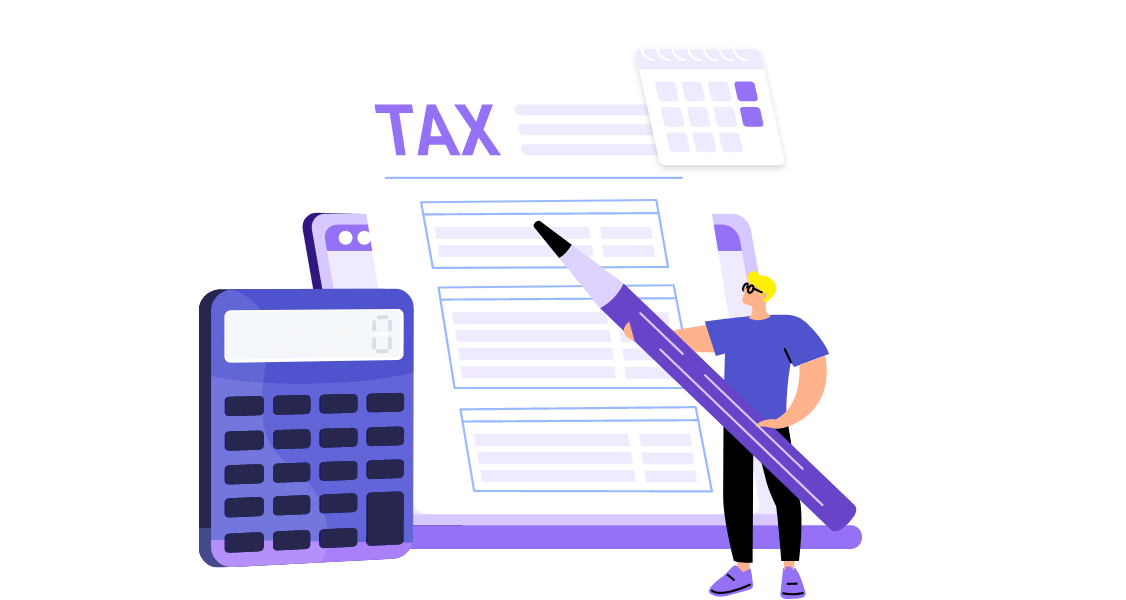

Player taxes - Beginner's Guide
Collaborative Insights, Trusted Expertise

You might not be thinking about taxes while claiming that shiny casino bonus you’ve been eyeing. But they’re real and not many gamblers think about them.
In this article, we’ll be taking a closer look at the gambling winning tax rules and how you should deal with them if you want to enjoy your winnings legally.
How Are Gambling Winnings Taxed?
If you make any significant winnings at any casino game (both online and land-based), you will have to pay taxes. The percentage depends from country to country but the most common ones you will see are:
-
30% for Canada;
-
24% for America;
-
15% for the United Kingdom.
The amount of money you should be paying taxes on also depends from country to country. Usually, the numbers depend on the game itself. For slot machines and bingo, you will be taxed for winnings of $1200 or more.
For keno, you’re taxed for winnings of $1500 or more, while for lotteries, wagering pools and sweepstakes, you’ll be paying taxes for winnings starting at $5000.
IMPORTANT
In some cases, the casino itself will be paying those taxes for you. This means that they will deduct the respective amounts from your winnings. In the US, however, you will have to declare and pay those yourself, using the IRS Form W-G2.
How About Smaller Winnings?
 Let’s face it - most of the winnings you’ll make won’t go over the limits we mentioned above. So does the gambling tax rate apply to those as well? Yes, most countries will require you to report any extra income you make.
Let’s face it - most of the winnings you’ll make won’t go over the limits we mentioned above. So does the gambling tax rate apply to those as well? Yes, most countries will require you to report any extra income you make.
Usually, this is done at the end of the year. So yes, even if you won $20, you will have to report that amount of money to your local tax agency. Any gambling income, along with your regular job income equals your total income at the end of the year.
However, you’ll be glad to find out that you don’t necessarily have to pay taxes on casino winnings in some cases.
How? Well, let’s take a look at the section below!
How to not pay taxes on gambling winnings
There are a few ways in which you can avoid paying taxes on casino winnings. The first one, as suggested by the IRS, is to itemize your deductions so you can claim your losses up to the amount of your winnings.
Besides that, there are some other exceptions to the rules. First of all, the IRS deemed that casinos are not obligated to keep taxes or give a W2-G to gamblers who win huge amounts of money while playing certain table games. The list of these games includes:
-
Blackjack;
-
Baccarat;
-
Roulette;
-
Craps;
-
Poker.
That’s because these casino games are classified as games of skill, not necessarily chance. Slot machines on the other hand, are classified by the IRS as games of chance. That’s because when you play table games, you need a certain set of skills to win.
Bottom line is to make sure you always keep track of your casino spending and earnings alike. If you found yourself spending $1500 to win $1500, you might not have to pay taxes on those casino winnings.
How to Report Taxes on Gambling Winnings

In many countries, the taxes are automatically deducted either by the casino, or by the regulatory tax body. In the United States, however, the situation is a bit trickier. At the end of every year, American citizens are required to prepare their taxes.
If that’s your case, you will have to report both your gambling winnings and taxes paid under the “Other Income” category on Form 1040.
While doing that, keep in mind that the 24% (in the United States, that is) is just an estimate.
PLEASE NOTE
The real amount you’ll have to pay (or be reimbursed) will depend on how much money you’ve made in that year.
Do casinos report gambling earnings to the IRS?
In most cases, the casinos will report the taxes on gambling winnings to the IRS. However, there are certain triggering points for that to happen. These points usually vary depending on the game type. These are the following thresholds a casino has to meet in order to report the winnings to the IRS:
-
$600 or more on horse betting;
-
$1200 or more on slot machines and bingo games;
-
$1500 or more on keno;
-
$5000 on poker tournaments.
Will the States Apply Taxes on Casino Winnings?
This section only applies to US gamblers.
You might not be aware of this, but besides the taxes you have to pay to the IRS, each state might have separate taxes you might have to pay. Each state has its own rules and regulations when it comes to gambling income.
Some states don’t even issue taxes on gambling winnings at all. Just make sure to read carefully through your state’s stances and relevant documents.
Taxes on Casino Winnings FAQs
1. Do casinos report your winnings to the IRS?
Some casinos do report your winnings to the IRS, once certain thresholds are met. Whatever the case might be, you’re still obligated to report your winnings yourself at the end of the year. This income includes winnings you’ve made from sports betting, lottery, raffles, horse races, and any games you play in a casino.
2. How much can you win at a casino without paying taxes?
The maximum amount you can win at a casino without having to pay taxes is $600. With the exception of winnings from poker, slot machines and keno, if the amount you win totals 300 times the money you bet.
3. How are casino winnings taxed?
In the US, you will have to pay 24% off your total winnings in taxes. In Canada, the percentage is 30%, while in the UK, you’ll only have to pay 15%. However, that depends from country to country so make sure you do your research beforehand.
4. What happens if you win a lot of money at a casino?
Before you can fully enjoy your big wins, you will have to pay taxes on them. Everything you’ve made from any gambling activities will be taxed by your respective country.
5. Do you pay taxes on blackjack winnings?
Yes, blackjack is a casino game so it’s included in the list of casino winnings you’ll have to pay taxes for. For the players in the US, blackjack is subjected to both a federal income tax and a local state tax (if enforced by your state).
